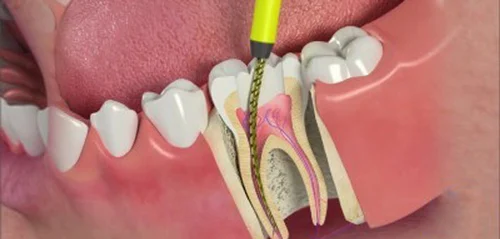When it comes to saving natural teeth and treating severe dental pain, an endodontist is a specialist who can make a significant difference. An endodontist is a type of dentist who has advanced training in diagnosing and treating issues that affect the interior of the tooth, especially the dental pulp and root canals. Whether you’re experiencing persistent tooth pain or have been advised to seek a root canal, understanding the role of an endodontist in Oceanside can help you make informed decisions about your oral health.
What Is an Endodontist?
An endodontist is a dental professional who focuses on the interior health of your teeth. After completing dental school, endodontists undergo additional training to specialize in diagnosing and treating problems involving the tooth’s pulp (the inner tissue) and the surrounding roots. This additional education and experience make them experts in performing complex procedures like root canal therapy, which is essential for saving teeth that might otherwise require extraction.
What Does an Endodontist Do?
The primary focus of endodontists is to help save natural teeth that are compromised due to decay, injury, or infection. Here’s a closer look at the services they typically provide:
- Root Canal Therapy: This is the most common procedure performed by endodontists. When a tooth’s pulp becomes infected or inflamed, a root canal can remove the damaged tissue, clean the canal, and seal it to prevent further infection. This treatment can relieve pain and save the tooth from extraction.
- Retreatment of Failed Root Canals: Sometimes, root canals done in the past can fail, either due to incomplete cleaning, new infection, or damage to the tooth. Endodontists are skilled in retreating these cases to save the tooth.
- Endodontic Surgery: For complex cases, endodontists may perform minor surgeries, such as an apicoectomy, which involves removing the tip of the root to clear up any infection in the bone around the tooth.
- Management of Dental Trauma: If you’ve experienced an injury to your tooth—like a cracked or knocked-out tooth—an endodontist can help manage and treat the trauma to preserve the affected tooth.
- Diagnosing Persistent Pain: If you have persistent dental pain that general dentists are unable to diagnose, an endodontist can often pinpoint the cause. They’re trained to find the source of pain that may be coming from a hidden crack in a tooth, inflammation in the pulp, or other issues within the roots.
Signs You May Need to See an Endodontist
It can be challenging to know when it’s time to see an endodontist rather than a general dentist. Here are some signs that may indicate you need specialized care:
- Severe Tooth Pain: If you’re experiencing intense, prolonged tooth pain that doesn’t go away with standard treatments, an endodontist in Oceanside can determine if the pulp is affected and recommend a course of action.
- Sensitivity to Hot or Cold: Extreme sensitivity to hot or cold temperatures, particularly if it lingers after the source is removed, may indicate pulp damage.
- Swelling and Tenderness: Swelling around a specific tooth or along the gumline can signal infection within the root, and it may require the attention of an endodontist.
- Previous Root Canal with Recurring Pain: If you’ve had a root canal treatment in the past but are now experiencing similar pain in the same tooth, an endodontist can assess and possibly retreat the area.
What to Expect During an Endodontic Procedure
Most endodontic treatments, especially root canals, are relatively straightforward and can usually be completed in one or two visits. Here’s what to expect during a root canal procedure with an endodontist:
- Examination and Diagnosis: The endodontist will begin with an in-depth examination, including X-rays, to assess the extent of damage to the tooth’s pulp and root canals.
- Local Anesthesia: To ensure your comfort, the endodontist will numb the area before starting any work.
- Cleaning and Shaping: Using specialized tools, the endodontist will remove the infected or damaged pulp, clean out the root canals, and shape them for filling.
- Sealing the Tooth: Once the canals are cleaned, they will be filled and sealed to prevent further infection. In most cases, you’ll need to return to your general dentist afterward for a crown to protect and strengthen the tooth.
Benefits of Seeing an Endodontist
An endodontist’s specialized training allows them to handle even the most complex cases with precision and care. Here are some advantages of choosing an endodontist for procedures like root canals:
- Pain Management Expertise: Endodontists are highly skilled in managing and reducing dental pain, making the experience as comfortable as possible.
- Advanced Technology: Endodontic practices often use advanced imaging tools and microscopic equipment to ensure the highest level of accuracy during procedures.
- Higher Success Rates: With their specialized training, endodontists have a high success rate in saving teeth through root canals and other treatments, preserving your natural smile.
If you’re experiencing severe tooth pain or have been told you need a root canal, visiting an endodontist in Oceanside could be the key to saving your tooth and relieving discomfort. An endodontist’s expertise ensures that your treatment is as effective and comfortable as possible, giving you peace of mind and long-term dental health.
For reliable endodontic care tailored to your needs, contact Grace Dental at (760) 653-8338 to schedule a consultation and start your journey to a pain-free smile. Let our specialists help preserve your natural teeth and keep your oral health on track.






